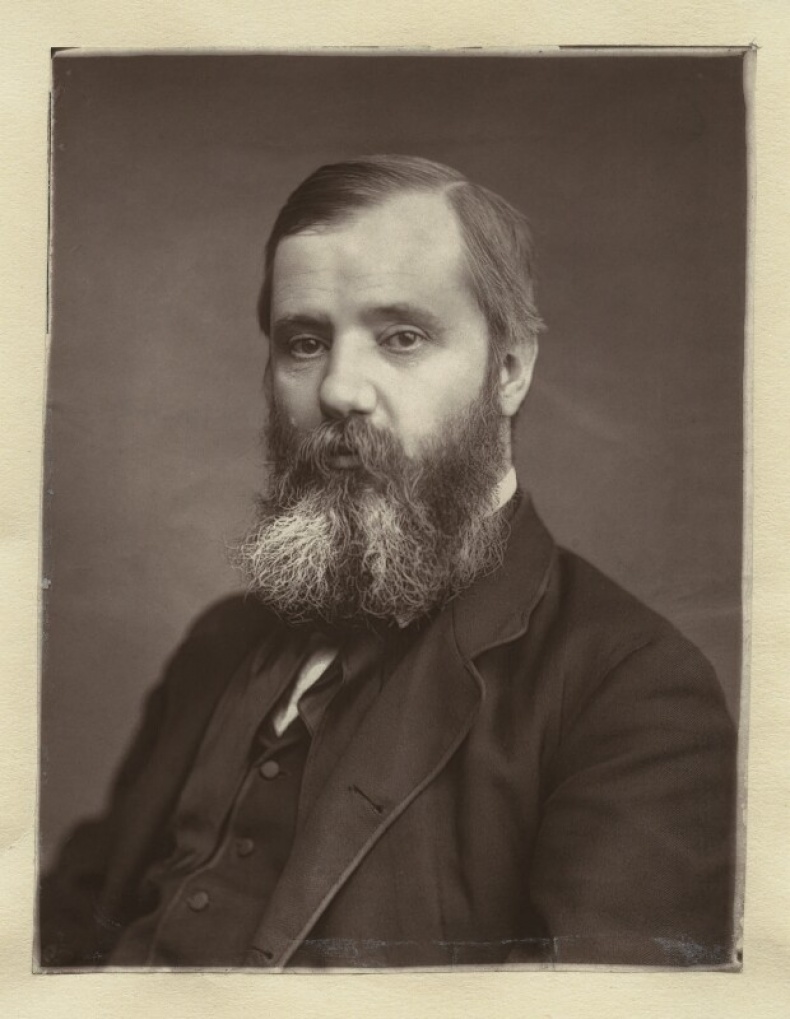
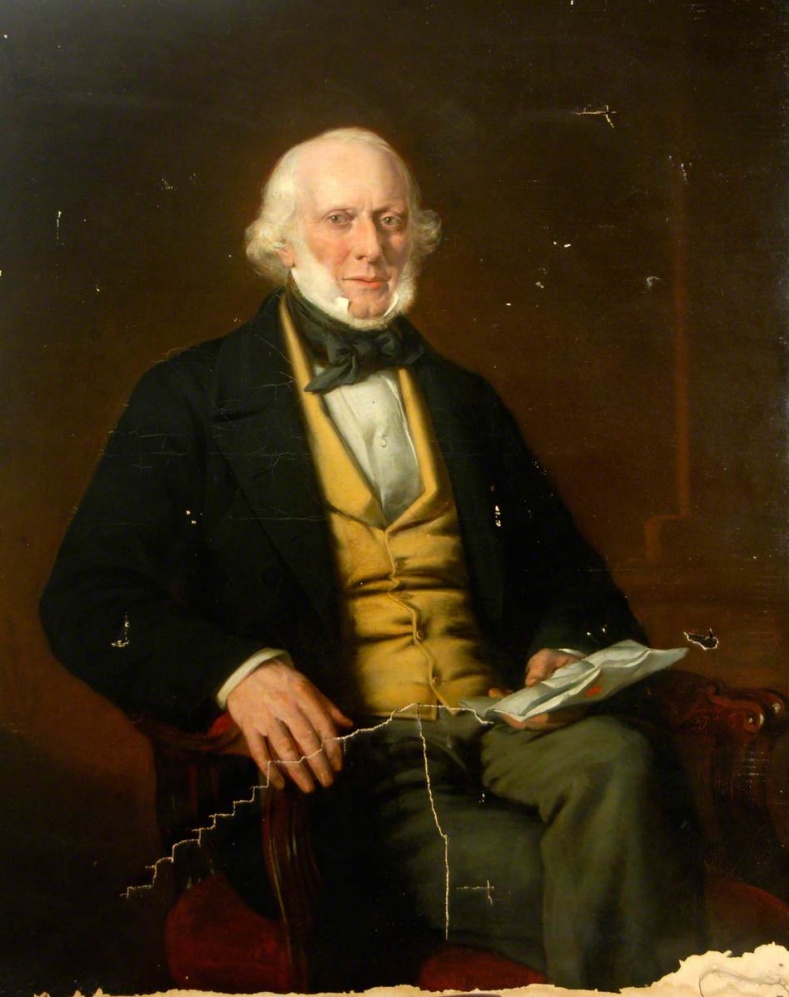
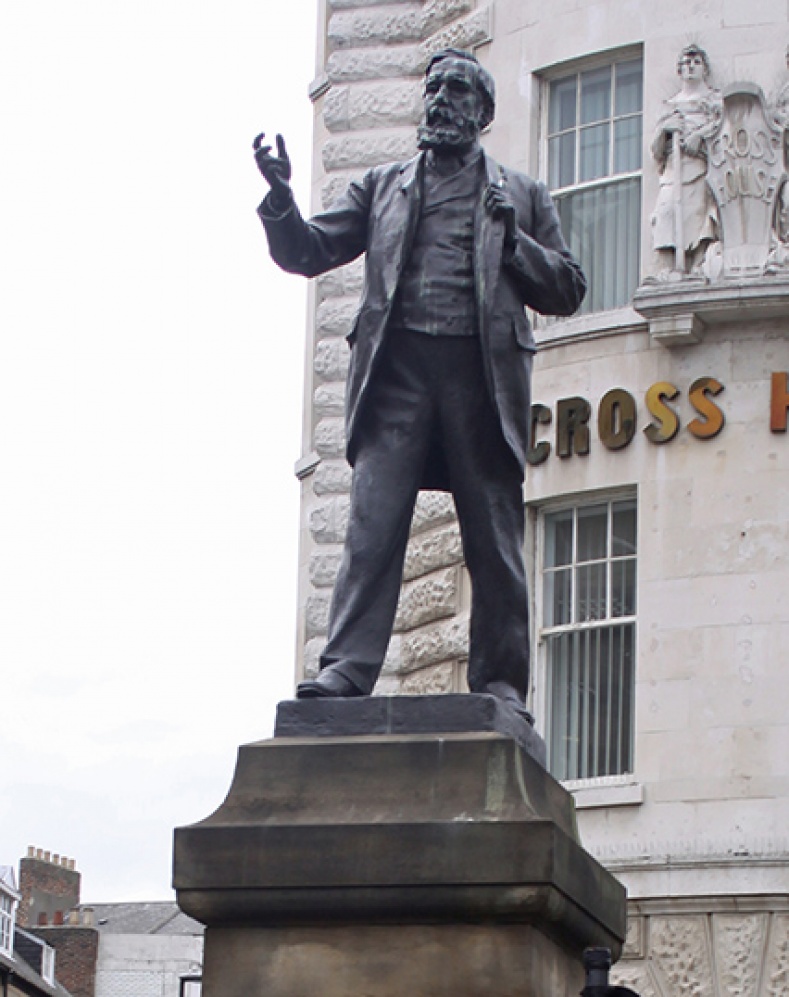
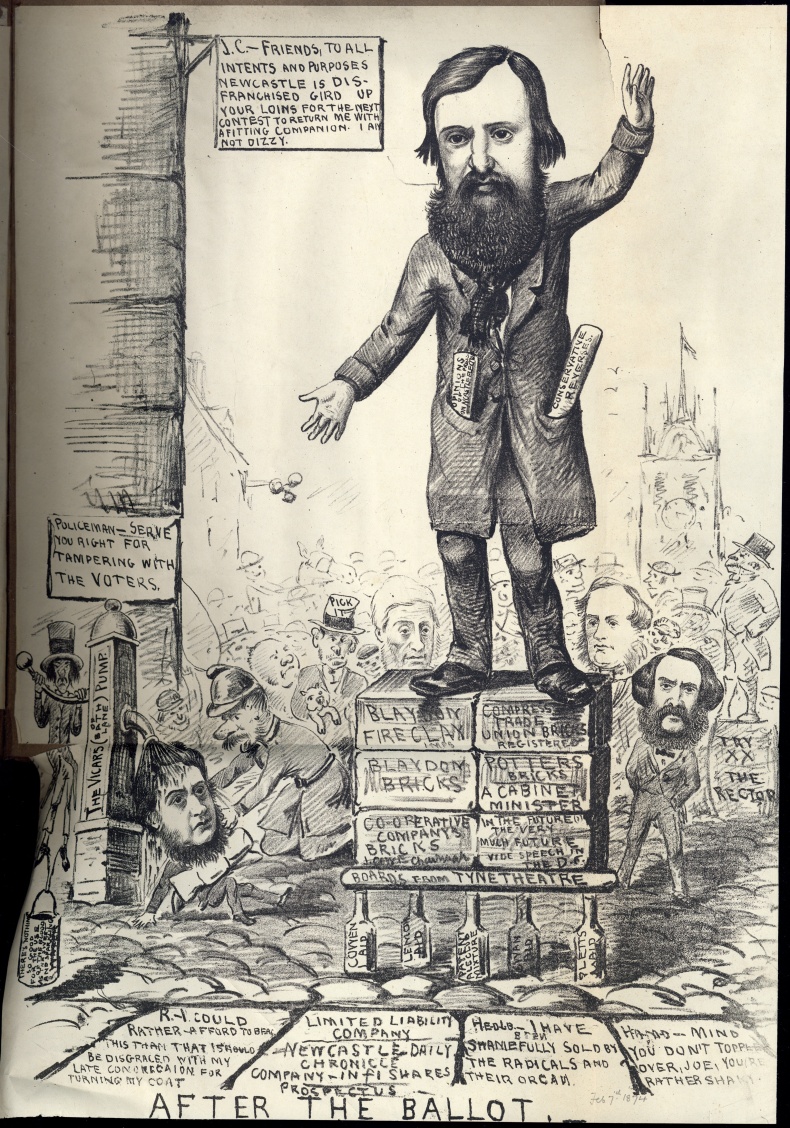
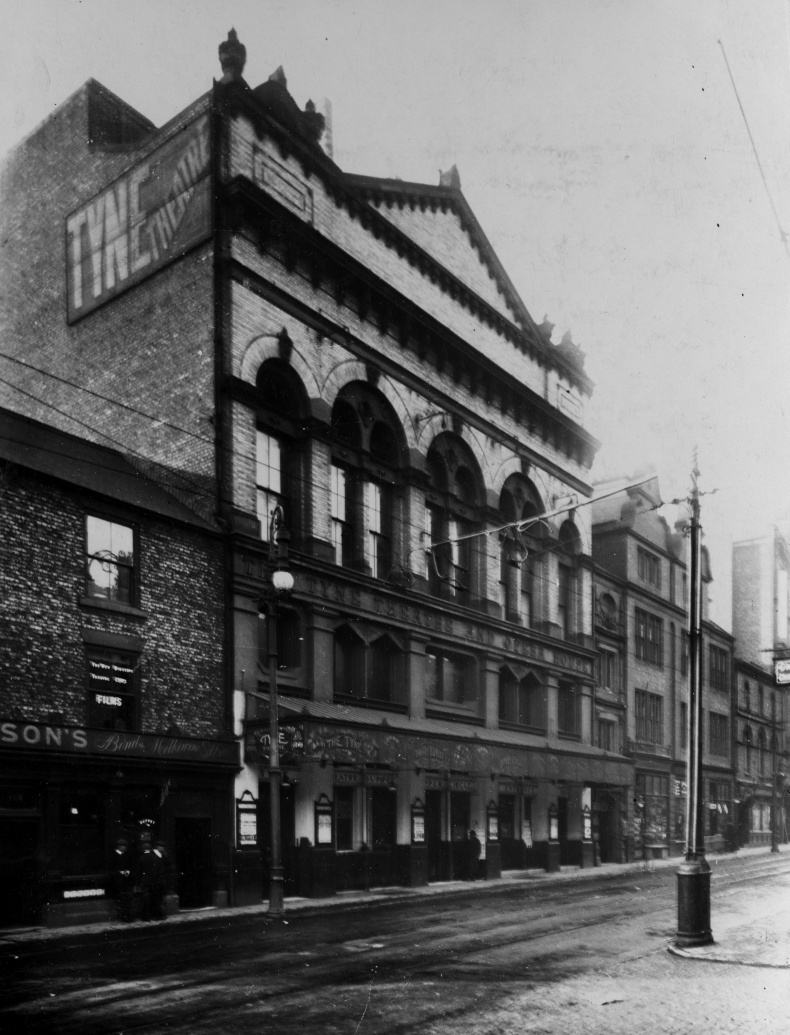
Cowen, Joseph
1829-1900
Newspaper Proprietor
Across the road from Newcastle’s Victorian-era County Court on Westgate Road, upon a plinth of solid stone, is the animated bronze statue of Joseph Cowen Jnr. The inscription reads ‘erected by public subscription in 1906’. Though his popularity had waned a little during his later years, Cowen had been a towering figure in Tyneside politics and English Radicalism.
Cowen was born in 1829 at Stella Hall to Joseph Cowen Snr (1800-1873) and Mary Newton (1765-1851). As the eldest of four sons, Joseph’s education was geared to his taking over the family’s Blaydon-based brick company and other family businesses. Cowen Jnr was educated privately before enrolling at Edinburgh University. From his father Joseph, he inherited both his fortune and political zeal. While at Edinburgh he was a formidable member of the debating society and was already making radical and revolutionary contacts throughout Europe. Like his father, he was successfully elected as Liberal MP for Newcastle (1874-1886) and as a member of the town council (for which his father had been knighted).
Cowen was passionate about reform and active political involvement. In the 1850s he founded The Northern Tribune, a radical newspaper. It’s difficult to express how bold a move this was. The newspaper was affiliated with ‘The Republican Brotherhood of Newcastle upon Tyne’ and1848 had been a year of serious armed revolutions throughout Europe. In 1859 Cowen attempted another route into journalism, this time a little less radically, buying the Newcastle Chronicle.
Although Cowen was intimately involved in global and national political developments, he always maintained close attention to the needs and experiences of the people of Tyneside. The Chronicle was used to support Tyneside workers in their fight for better conditions. He also introduced one of England’s first children’s columns to help raise literacy. Cowen understood that even after free-lending libraries and schooling extended access to education for the poor, newspapers remained one of the most accessible and important sources of literature and learning.
Cowen campaigned and subscribed to many Tyneside causes with the aim of improving life. This included the setting up of Newcastle’s public library, for which he withdrew the first book (J.S. Mill’s On Liberty). He sat on the Arts Association committee and helped found both the Tyne Theatre and Opera House (near to where his statue is located).
Today Cowen is remembered through several legacies including the Cowen collection, Cowen Halls and the Joseph Cowen Chair of English Literature at Newcastle University. More recently, the ‘Joseph Cowen Lifelong Learning Centre’, a charity founded in 2013 to provide peer-learning educational opportunities for adults, carries on Joseph’s vision of life-long, self-organised education for working people.
References
Cowen Family Tree. Available here (Accessed: 28/06/2018).
Elwsick Park. Available here (Accessed: 28/2018).
Hugman, J. (2001). Print and Preach: The Entrepreneurial Spirit of Nineteenth-Century Newcastle, in Colls, R. & Lancaster, W. (eds.), Newcastle upon Tyne: A Modern History, pp. 113-132.
Lomas, R. (2009). An encyclopaedia of North-East England, Edinburgh: Birlinn Ltd, pp. 117-118.
Middlebrook, S. (1950). Newcastle: Its Growth and Achievement, Newcastle: Newcastle Journal and North Mail, pp. 309.
Newcastle Special Collections. Available here (Accessed: 28/06/2018).
Rae, W.F. (2004). Cowen, Joseph. Available here (Accessed: 28/06/2018).